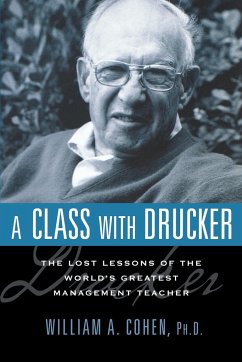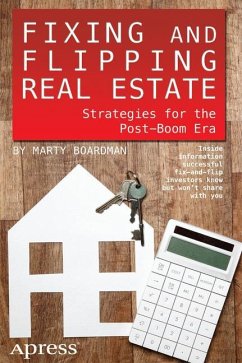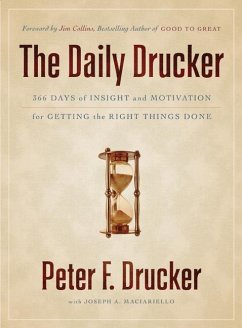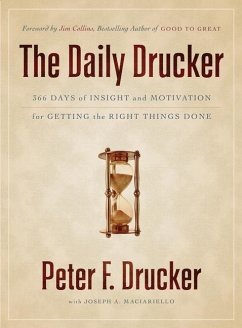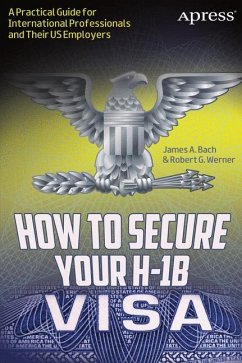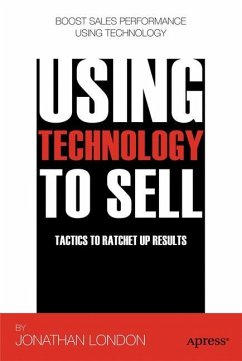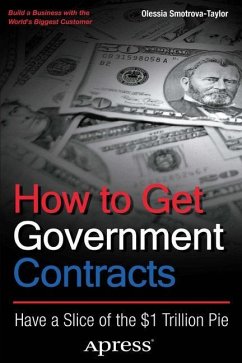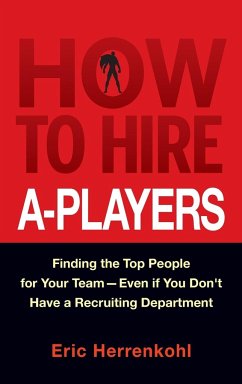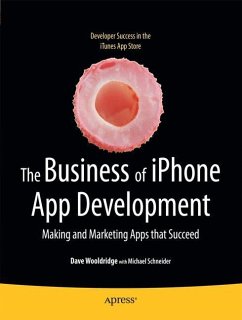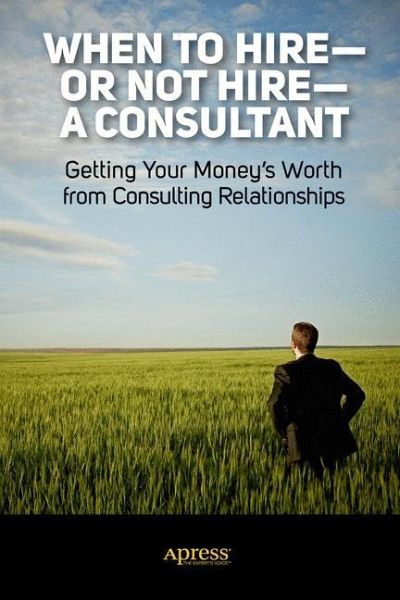
When to Hire or Not Hire a Consultant
Getting Your Money's Worth from Consulting Relationships

PAYBACK Punkte
11 °P sammeln!
When to Hire-or Not Hire-a Consultant:Getting Your Money's Worth from Consulting Relationships is a hands-on, practical guide for anyone thinking about hiring a consultant to set strategy, solve problems, increase profits or revenue, develop new products, open new markets, or improve efficiency.Consulting is one of the fastest growing professions in the United States. According to the U.S. government, there were 719,000 consultants in the U.S. in 2010, and you can expect an additional 274,000 by 2020. Cloaked in "expert" status, consultants might seem to be the answer to many business problems...
When to Hire-or Not Hire-a Consultant:Getting Your Money's Worth from Consulting Relationships is a hands-on, practical guide for anyone thinking about hiring a consultant to set strategy, solve problems, increase profits or revenue, develop new products, open new markets, or improve efficiency.
Consulting is one of the fastest growing professions in the United States. According to the U.S. government, there were 719,000 consultants in the U.S. in 2010, and you can expect an additional 274,000 by 2020. Cloaked in "expert" status, consultants might seem to be the answer to many business problems. You call someone in to solve a particular problem or develop new markets, then send them away once the job is done-while reaping the benefits of their expertise. Consultants sometimes do work miracles, but once in a while they wreck a healthy business. And far too often, the benefits gained by calling in consultants disappear far too soon after they leave.
Yet as return on investment (ROI) and accountability for results become bigger and bigger issues, business professionals in search of answers to performance or strategy challenges are turning more and more to outside guidance for help. Indeed, few businesses do not use some kind of consultant at some point in their existence. But how can you leverage the skills consultants can bring to the table without adding undue risk to your operations? How can you effectively manage the consultant relationship to get the greatest benefit for the least cost? What metrics can support your decision to hire-or not hire-a consultant? When should you use home-grown talent to solve problems instead? That's what this book is all about.
While there are a multitude of books on how to be a consultant, this is the first to help an executive determine when to hire one. You will learn strategies to decide when a consultant is needed and how to support that decision with hard evidence, how to selectthe right consultant, how to set clear expectations, and how to know when a consultant is either a valuable resource or a hindrance to the company's success.
The authors of this book bring together two opposing perspectives. Linda Orr has served as a consultant in many companies and situations, while Dave Orr has hired consultants many times. Together, they can help you make the most strategically and financially sound business decisions. This books shows you how to:
Work through ROI and other issues to support a decision to hire a consultant. Maximize the benefits consultants can provide. Explore options other than hiring a consultant.
Consulting is one of the fastest growing professions in the United States. According to the U.S. government, there were 719,000 consultants in the U.S. in 2010, and you can expect an additional 274,000 by 2020. Cloaked in "expert" status, consultants might seem to be the answer to many business problems. You call someone in to solve a particular problem or develop new markets, then send them away once the job is done-while reaping the benefits of their expertise. Consultants sometimes do work miracles, but once in a while they wreck a healthy business. And far too often, the benefits gained by calling in consultants disappear far too soon after they leave.
Yet as return on investment (ROI) and accountability for results become bigger and bigger issues, business professionals in search of answers to performance or strategy challenges are turning more and more to outside guidance for help. Indeed, few businesses do not use some kind of consultant at some point in their existence. But how can you leverage the skills consultants can bring to the table without adding undue risk to your operations? How can you effectively manage the consultant relationship to get the greatest benefit for the least cost? What metrics can support your decision to hire-or not hire-a consultant? When should you use home-grown talent to solve problems instead? That's what this book is all about.
While there are a multitude of books on how to be a consultant, this is the first to help an executive determine when to hire one. You will learn strategies to decide when a consultant is needed and how to support that decision with hard evidence, how to selectthe right consultant, how to set clear expectations, and how to know when a consultant is either a valuable resource or a hindrance to the company's success.
The authors of this book bring together two opposing perspectives. Linda Orr has served as a consultant in many companies and situations, while Dave Orr has hired consultants many times. Together, they can help you make the most strategically and financially sound business decisions. This books shows you how to:
Work through ROI and other issues to support a decision to hire a consultant. Maximize the benefits consultants can provide. Explore options other than hiring a consultant.





